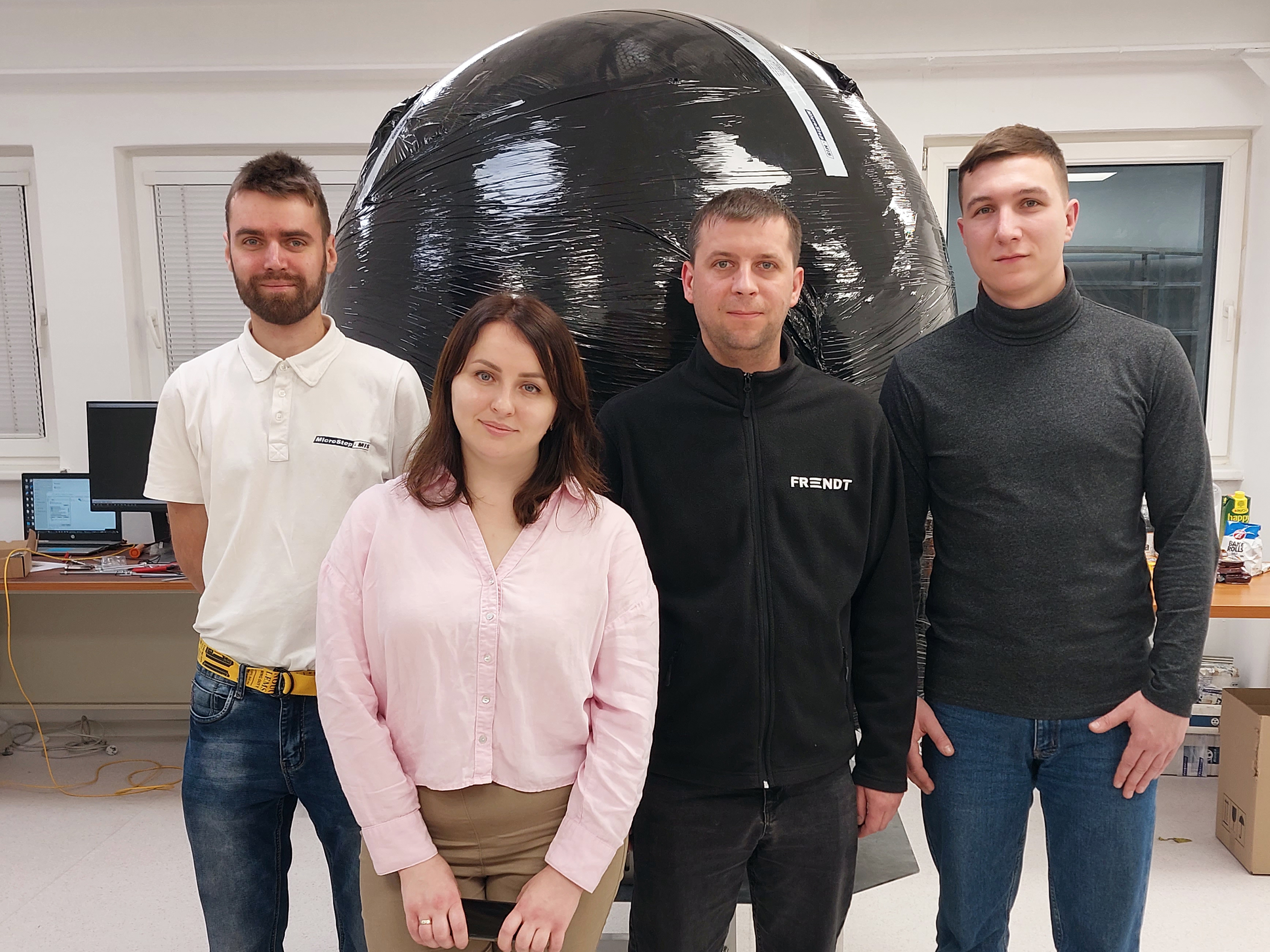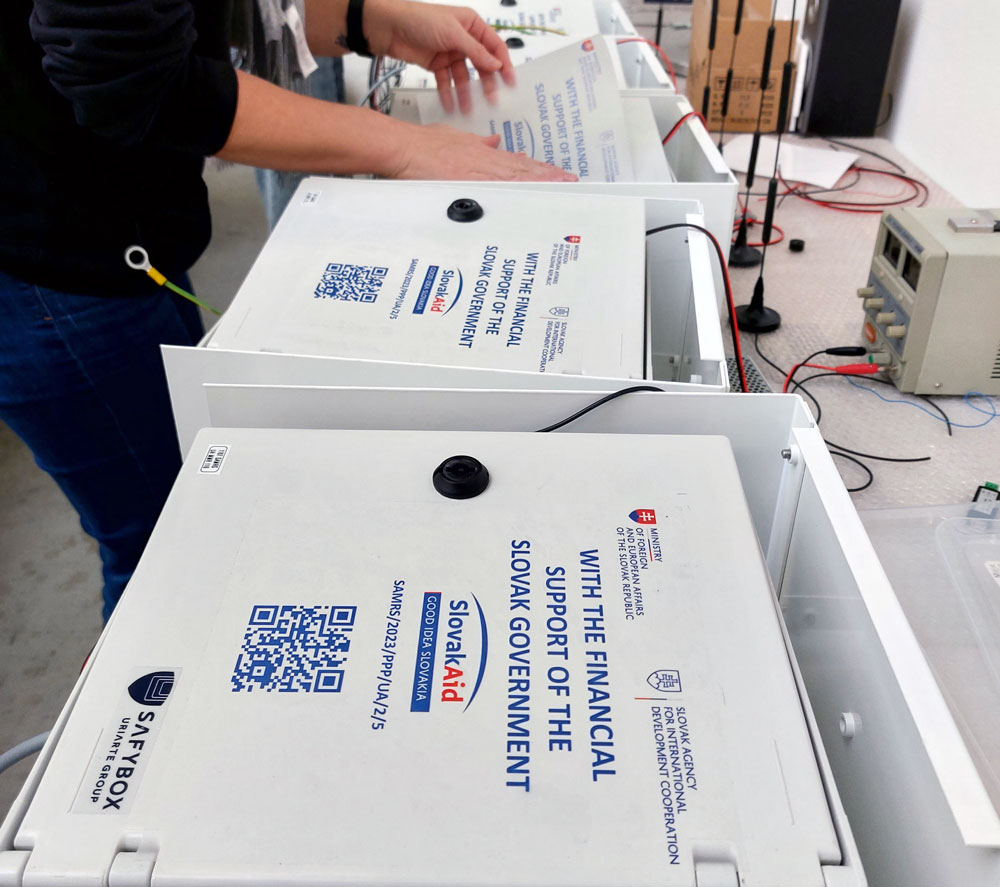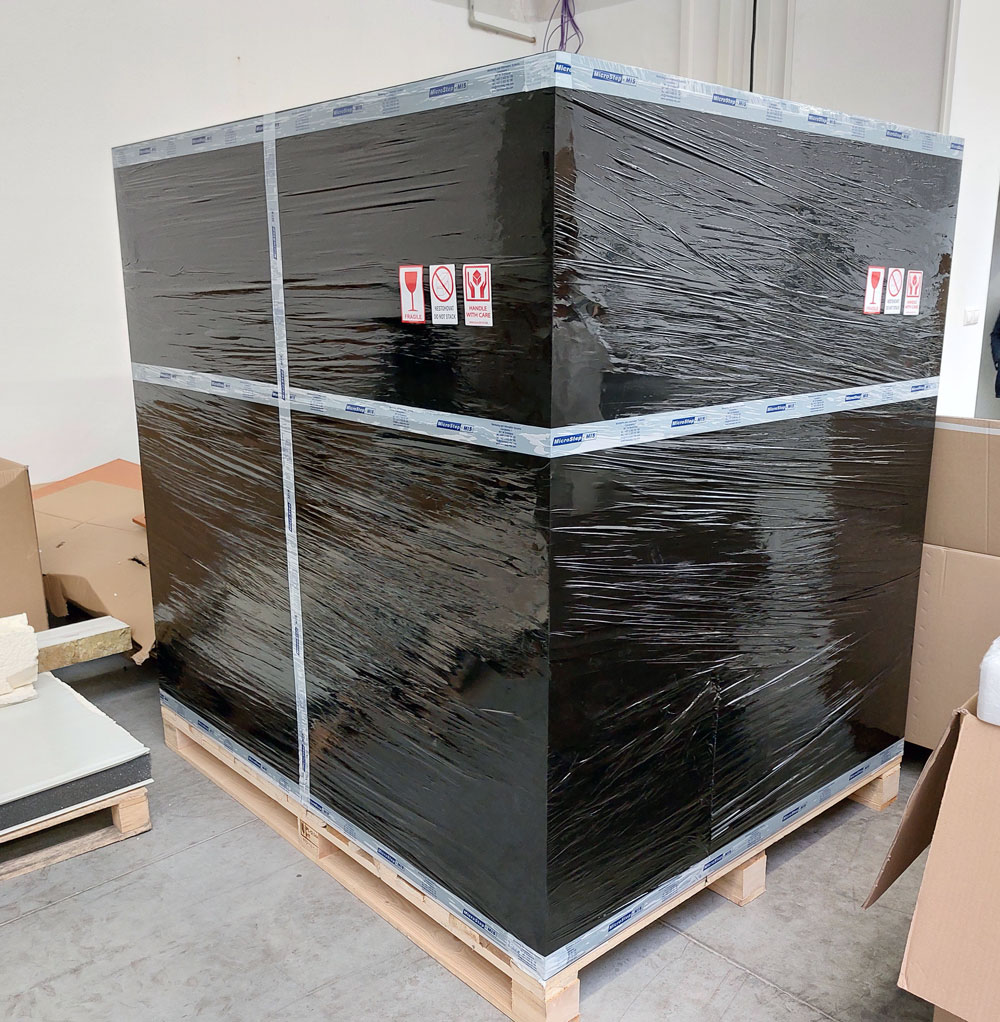We are thrilled to announce our participation in an international development project, "The Support for Recovery and Building New Infrastructure and Capacities for Providing Services through Monitoring and Forecasting Meteorological Parameters", identified with the project ID SAMRS/2023/PPP/UA/2/5. This initiative is being conducted in cooperation with our long-term partners from MPS–System and Frendt. The project is funded by the Slovak Agency for International Development Cooperation (SlovakAid). Our partner, Frendt—a private Ukrainian firm at the forefront of implementing advanced technologies in precision agriculture—will benefit from our collaboration with MPS-Systems in supplying meteorological equipment to support agricultural activities in the Vinnytsia region of Ukraine.
One of the most important drivers of our cooperation is the actual situation around the world related to climate change. Climate change is a key issue due to the significant threat it poses to water resources, food security, safety, ecosystem services, and biodiversity. In 2021, global ocean surface temperatures were 0.65 degrees Celsius higher than the 20th-century average.¹ However, this increase might be fundamentally higher (or even lower) in different regions of the world, due to changes in the dominant atmospheric processes (pressure systems, oceanic currents, etc.) and their interactions. The frequency of extreme rainfall has increased with the likelihood of continuation. Ukraine is experiencing the consequences of climate change. Higher temperatures, unpredictable precipitation, and increased occurrences of droughts and floods are affecting people across the country. Weather phenomena have led, among other adverse effects, to a decrease in crop production, resulting in reduced livelihoods. It is likely that climate change will negatively impact Ukraine's future development, which focuses, among other things, on ensuring food and nutrition security.
Understanding the hydrological cycle and the distribution of precipitation in space is crucial information for agriculture, water resource planning, and energy. Information about precipitation—both measured and expected—is the primary input for monitoring water resources and an important piece of information for the daily lives of communities.
Currently, precipitation data is only monitored at existing meteorological stations, whereas short-term forecasts and subsequent warnings are not available, and spatial distribution of precipitation over a larger area, focused on agriculture needs, is neither monitored.
Having considered all these reasons, a system has been designed to improve precipitation monitoring and nowcasting contribution, specifically tailored for local agricultural needs. Our contribution includes the Mini Meteorological Radar MMR-116 and the Unified Data Collection System (UDCS), complemented by the Climatological Database (CLDB). MPS-Systems has provided ten Automatic Precipitation Stations, strategically positioned within a radius around the radar installation site. This setup allows for local measurements to be compared against area-wide data, providing valuable insights for precise weather prediction at the individual field level.
In November 2023, we conducted a comprehensive training session at the training centers of MPS-System and MicroStep-MIS, focusing on installation, maintenance, operation, and data management. The participants also included personnel from Frendt, who were trained in the utilization and interpretation of meteorological data to maximize the benefit to local agricultural practices.
The system was physically delivered to the client in mid-April of 2024 and is expected to be installed shortly. The installation will be carried out by Frendt, in cooperation with the engineers of MPS-Systems and MicroStep-MIS.
______



